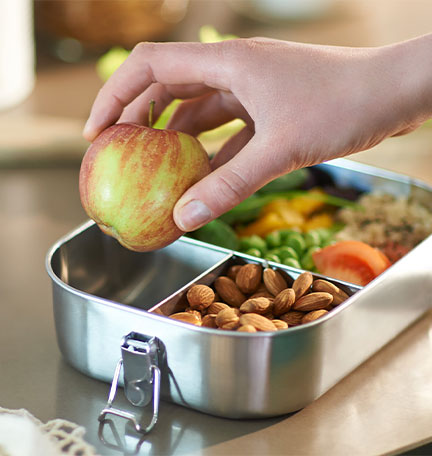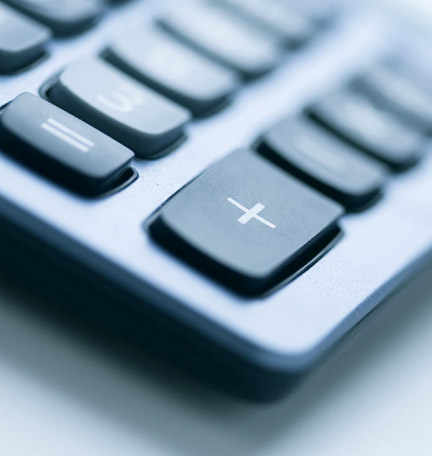7 Essential Strategies for Bill Paying in Inflationary Times
Use these tips to stay afloat when prices go up.
Bill paying can be challenging enough under normal circumstances, with many Americans trying to make it from one paycheck to the next without running out of money. When costs increase by 10% or more annually, it gets even harder to pay all your bills on time. That’s especially true these days as several of life’s essentials are costing 10%, 15% and even 20% more than they did just a year ago.
From November 2021 to October 2022, for example, the cost of eating at home increased 12.4% and the cost of dining out rose 8.6%. During the same period, electricity and gasoline prices jumped 14.1% and 17.5%, respectively. When these essential costs increase, anyone’s budget can be knocked off balance.
In the face of such financial challenges, what can you do to retain control of your finances? Timothy Mills, Emerging and Digital Payments Group Manager at Regions Bank, says: “There are three very important things that can always help: Budget, budget and budget.”
Here’s where to start with your budget—and six other essential things you should be thinking about.
1. Create a New Budget and Stick With It
The most tried-and-true financial step anyone worried about their finances can take is usually creating or revising a budget. “Many people don’t know how to budget,” says Mills. “Others know how, but they tend to get relaxed about adhering to a budget.” Looking at your outflow versus your inflow of money can be an eye-opening exercise if you aren’t used to paying much attention.
The best budgeters pay attention to everything, including the seemingly modest daily expenses that can add up over time. For example, an $8 latte and $20 lunch each day add up to $140 during a five-day workweek, and $7,000 over the course of a year.
2. Control Your Debt
Excessive debt, especially high-interest-rate debt, can lead to a downward spiral that can be hard to escape. Though it’s often easier said than done, do all you can to control debt and try to avoid it when possible. Question any and all expenses that you’ll need to use credit to cover, especially those that you won’t be able to pay off within a short period of time.
Avoiding too much debt can be a key element of your budgeting practice. Exercise financial self-control and build good habits while keeping an eye on your debt level. As you save money or tackle your debt, reward yourself by buying a modest treat every now and then. That could help motivate you further as you make progress.
3. Save Money When and Where You Can
Saving money when shopping can be a mindset as well as a disciplined practice. Here are a few tips that can help you curb your costs:
- Groceries: Don’t shop when hungry. Look for generic (no-name) brands, which use essentially the same formulas as the name brands but cost less.
- Health: Control your health-care costs by pursuing a healthy lifestyle. You can avoid many health conditions and costly doctor’s bills by eating a healthy, sensible diet, exercising regularly and sleeping well.
- Clothes: Look for discounts at retail outlet stores.
- Big-ticket purchases: Negotiate all large purchases, such as large electronics and major appliances. In a time of inflation, avoid as many of these purchases as you can.
Ask yourself: “Is this a need or just a want?” In other words, would you be fine without the purchase?
4. Secure Your Income
While spending less money is important, maintaining and securing your source of income is enormously important as well. “Make sure you are adding value with your employer,” says Mills. “During times of economic stress, employers may need to make job cuts. Add to your job security by showing up and demonstrating your worth at work.”
5. Avoid the “Make More, Spend More” Trap
In an environment where jobs are plentiful, as they have been over the past couple of years, it’s easy to think that once you earn more, you can spend more. Even if that’s true this month or next, it can be a dangerous trap to fall into, especially when saving the extra money earned could provide an opportunity to become more financially secure.
6. Build Your Emergency Savings
One of the basic building blocks of personal financial success is to build an emergency savings fund. It can serve as a buffer that can keep you from falling into debt when financial surprises pop up, such as a major car repair, a trip to the emergency room or a new furnace or other major home repair.
Aim to have emergency savings that could be used to pay at least three months’ worth of living expenses. Though that might sound like a lot of money, approach it as a monthly habit that you stick with through all financial ups and downs. You could even set up a monthly automatic deposit to your savings account. If you can’t see it, you won’t spend it.
7. Avoid Bankruptcy, the Financial “Nuclear Option”
When times get tough, some people just give up and declare bankruptcy. At least it’s a way out of having to pay bills that seem impossible to pay. The big problem is that this quick-fix solution can leave you with a very long financial hangover. Your credit score, your ability to secure a loan, the interest rate that you’ll pay on that loan if you are approved and your record when applying for a job—they could all be affected.
“Before taking extreme measures, such as declaring bankruptcy or accepting a foreclosure, reach out to your creditors,” says Mills. “Be honest. Be transparent about your situation. In many cases, they will be more likely to help you. After all, your creditors stand to experience a financial loss if you go bankrupt.”
As tough as these times can be, remember your financial ABCs: Avoid debt. Budget, budget and budget. Control your finances.
Three Things to Do
- Review your spending for the last three months and itemize each purchase. What could be cut from your monthly budget?
- Watch a quick video about managing your credit card debt.
- Open a separate savings account for your emergency fund to avoid the temptation of spending it.







